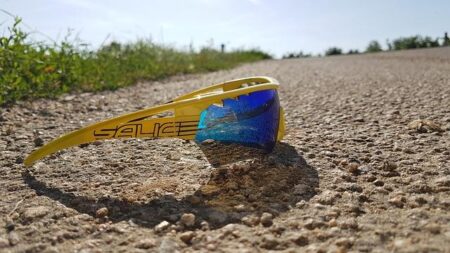In a bold push for equity and recognition in the world of competitive cycling, Cynisca, a women’s cycling team, has announced plans to secure $1 million in funding aimed at enhancing their performance and visibility ahead of the Tour de France Femmes 2026. As the conversation around women’s sports gains momentum, advocates are emphasizing the urgent need for investment in female cycling, highlighting the sport’s evolving landscape as a “sink-or-swim situation.” With the Tour de France Femmes set to become a pivotal stage for female cyclists, Cynisca’s initiative underscores the critical juncture at which women’s cycling stands, blending ambition with a clarion call for greater support and development. As they prepare to tackle the challenges ahead, the team’s efforts spotlight the disparities that still exist within the cycling world and the relentless drive of female athletes aiming to carve their mark on one of cycling’s most prestigious platforms.
Cynisca’s Ambitious Fundraising Campaign Aims to Revolutionize Women’s Cycling
Cynisca, the pioneering organization dedicated to advancing women’s cycling, has launched an ambitious campaign to raise $1 million aimed at enhancing the stature of the Tour de France Femmes by 2026. The fundraising effort seeks to address the systemic challenges female cyclists face, ensuring they receive equal opportunities, funding, and recognition in comparison to their male counterparts. As much of the cycling world still appears imbalanced, this initiative is not just about financial support, but rather a broader mission to empower women in sports and elevate their visibility in the cycling community.
The campaign outlines a clear vision to transform the landscape of women’s cycling through various strategic approaches, including:
- Infrastructure Investment: Enhancing venues and funding for women’s events.
- Grassroots Programs: Supporting local clubs and youth programs to build future talent.
- Media Coverage: Partnering with networks to ensure extensive coverage and promotion of women’s races.
- Sponsorship Development: Creating partnerships with brands focused on gender equality in sports.
| Key Goals | Timeline |
|---|---|
| Fundraising Milestone | By 2025 |
| Increase Race Participation | By 2026 |
| Enhanced Media Presence | Ongoing |
| Expanded Sponsorships | By 2026 |
This campaign aligns with Cynisca’s philosophy that “the future of women’s cycling is a sink-or-swim situation.” They emphasize that substantial investment now will not only impact the current roster of female athletes but will also inspire future generations to pursue cycling as a viable career. The call to action is clear: the cycling community must unite to create a sustainable model that champions women’s progress in a predominantly male-dominated arena.
The Path to Equality: Striving for Inclusion in the Tour de France Femmes
As the conversation around gender equity in sports intensifies, the push for equality in women’s cycling is gaining momentum, particularly with the ambitious efforts led by initiatives like Cynisca. No longer content with mere representation, the organization seeks to raise $1 million to elevate the profile and reach of the Tour de France Femmes by 2026. This funding aims to enhance the competitive landscape, ensuring that female cyclists have access to the same training, facilities, and support systems traditionally afforded to their male counterparts. The investment represents a critical step in the journey toward a more inclusive cycling community, where women have the opportunity to shine on the biggest stages of their sport.
However, the obstacles remain daunting. According to Cynisca, the current framework within professional cycling often resembles a sink-or-swim situation for female athletes, with insufficient sponsorship and media coverage hampering their progress. Addressing these disparities requires a collective effort from various stakeholders, including cycling federations, sponsors, and fans. The path to genuine inclusion involves not only financial backing but also a commitment to reshaping the narrative surrounding women’s cycling. Key objectives include:
- Increasing visibility of women’s races in mainstream media.
- Enhancing funding for women’s teams and events.
- Fostering community support and engagement among fans.
Investing in the Future: Recommendations for Supporting Women’s Cycling Initiatives
Investment in women’s cycling is not just a moral imperative; it is a strategic move that can drive the sport into new heights. By mobilizing financial support and resources towards women’s cycling initiatives, stakeholders can create a more level playing field while enhancing the overall appeal of the sport. Potential areas for investment include:
- Grassroots Programs: Funding local clubs and community initiatives that encourage female participation.
- Developmental Academies: Establishing training programs tailored for young female cyclists.
- Media Exposure: Partnering with networks to increase visibility for women’s events, fostering wider audiences.
- Sponsorship Opportunities: Encouraging brands to invest in women’s teams and events to enhance their marketing presence.
Collaborations between stakeholders, sponsors, and advocacy groups can amplify these efforts. The importance of elevating women’s voices within the cycling community cannot be overstated. By fostering an ecosystem supportive of women’s cycling, we set a foundation for sustained growth and success. A proposed funding model could look like this:
| Funding Source | Proposed Amount | Target Area |
|---|---|---|
| Corporate Sponsorship | $500,000 | Team Support |
| Government Grants | $300,000 | Community Programs |
| Crowdfunding Campaigns | $200,000 | Event Organization |
To Wrap It Up
As the landscape of women’s cycling continues to evolve, Cynisca’s ambitious plan to secure $1 million in funding underscores a pivotal moment for the sport. Targeting the prestigious Tour de France Femmes in 2026, their initiative highlights the urgent need for investment in a discipline that has been defined by both its challenges and opportunities. With female cyclists gaining more recognition and support, the success of this funding campaign could prove critical in establishing a competitive platform for women on the world stage. As we look ahead, the commitment to elevating women’s cycling is not only a testament to the resilience and determination of the athletes but also a call to action for sponsors and supporters to embrace the vision of equality in sports. The next few years will be crucial in shaping the future of women’s cycling, and how stakeholders respond to initiatives like Cynisca’s will determine whether the sport will sink or swim.











